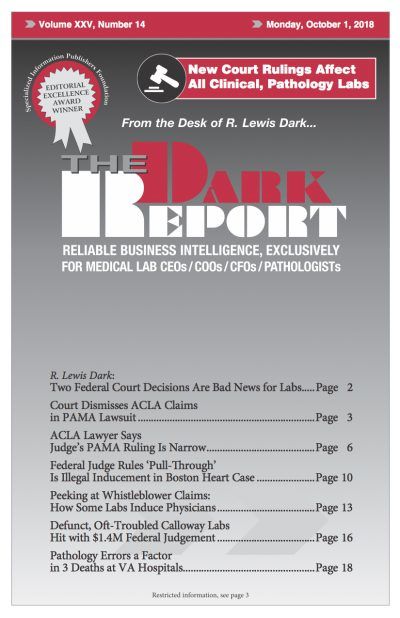CEO SUMMARY: While acknowledging that the American Clinical Laboratory Association raises important questions in its case against the federal Department of Health and Human Services, a district court judge ruled that the court cannot resolve the dispute and dismissed the ACLA’s claims for lack of “subject matter jurisdiction.” While not dismissing it outright, the judge …
Court Dismisses ACLA Claims in PAMA Case Read More »
To access this post, you must purchase The Dark Report.


